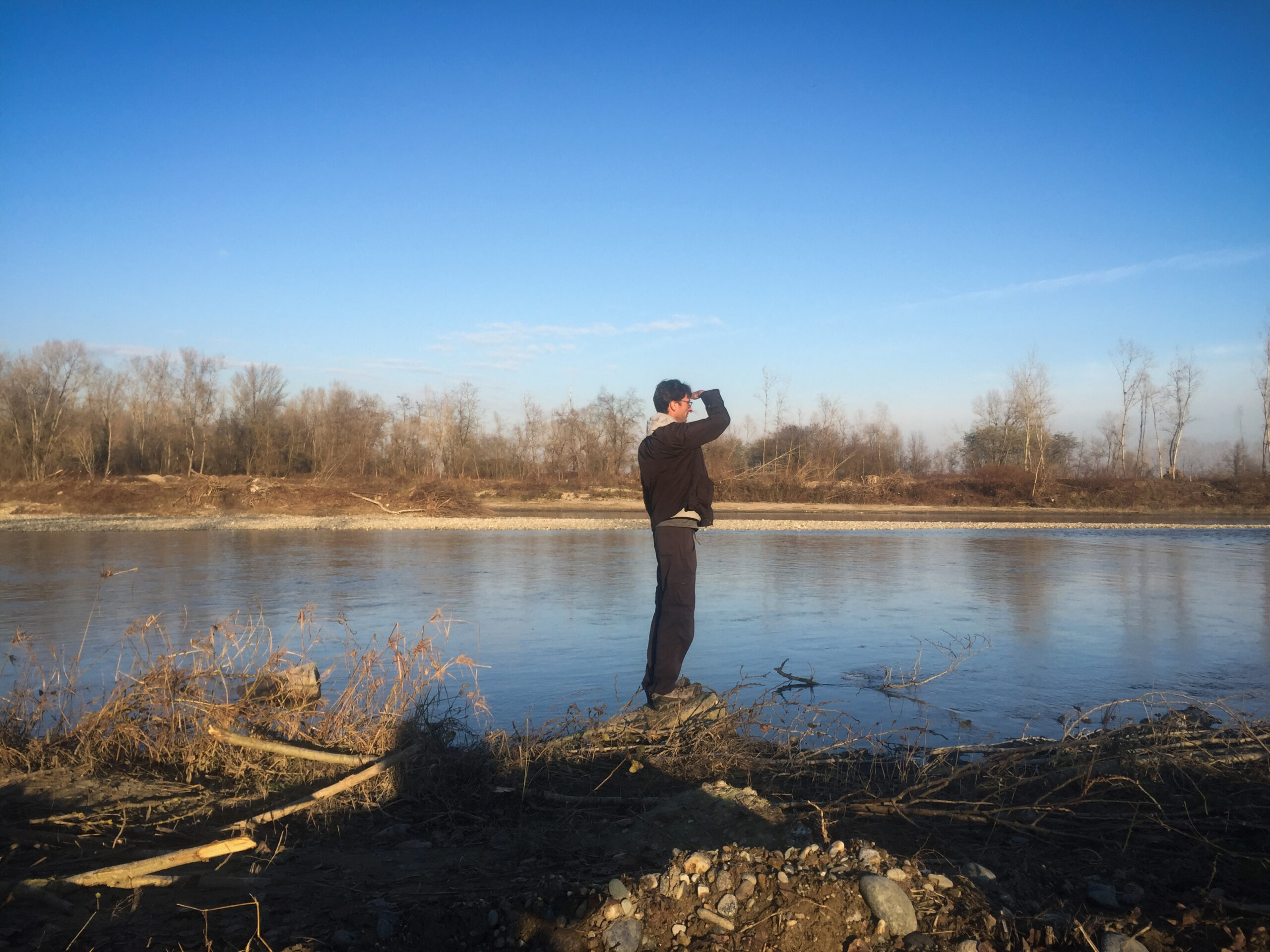In November Joshua G. Stein started working on his project “Sediment as cultural heritage” within the STARTS4Water residency at Cittadellarte-Fondazione Pistoletto and UNIDEE residency programs (Biella, Italy) for the regional challenge Rebuilding relationships with fluvial systems: exploring people’s relationships with rivers and streams.
For the first stage of the research process Joshua G. Stein met several experts during two Local Expert Group meetings and individual visits.
The artist explored the hydrography of La Bessa Special Nature Reserve area located in northern Piedmont next to the Aosta Valley and at the base of the southern slopes of the Biellese Alps in the province of Biella and visited the basin of the Sanctuary of Oropa, a place closely linked to his project proposal as a cultural element included in the network of the Sacred Mountains of Piedmont and officially recognised as a UNESCO World Heritage Site.
Joshua explored the Cervo Valley, visiting the main locations related to geological, geomorphological, historical, and hydrographic insights. He deepened his research through some historical archives in the Biella area (DocBi, Oropa Sanctuary, Centro Documentazione Alta Valle Cervo), studying the relationship with fluvial systems from a cultural, historical, and industrial point of view. Moreover, he visited a sewage treatment plant to understand the wastewater processes, Sellalab headquarter, and some rice fields to know more about water use in rice production.
During the Local Expert Group meeting organised in Biella at Cittadellarte, the experts introduced how the theme of sediment concerning water and river systems relates to their work and their specific discipline. The meeting allowed Joshua to understand the different facets of the regional challenge of managing water and river systems. It was an opportunity to explore possible thematic intertwining and directions of the research progress.
During the Local Expert Group meeting organised in Turin at the Politecnico, the professors and researchers pointed out the connection between Joshua’s project and their discipline and field of research (climatology, hydraulic engineering, planning, and urbanism). They discussed the sediment concerning water and river systems and explored the aspects related to their specific discipline. The meeting allowed Joshua to enrich this research phase with important contributions related to hydraulic engineering, water management in urban planning, and climate change prediction models. An important part of the meeting was dedicated to the topic of AI technology available in the different research institutes, as well as to the most useful tools and software to proceed with the development of the project.

Joshua G. Stein residency | Local Expert Group meeting in Cittadellarte, Biella (Italy) 
Joshua G. Stein residency | Local Expert Group meeting in Politecnico, Turin (Italy) 
Joshua G. Stein residency | visit to Bessa Special Natural Reserve (Italy) 
Joshua G. Stein residency | visit to Cervo Valley (Italy) 
Joshua G. Stein residency | visit to Fabbrica della Ruota in Pray (Italy) 
Joshua G. Stein residency | visit to Cordar sewage treatment plant in Cossato (Italy) 
Joshua G. Stein residency | visit to the rice fields in Vercelli area (Italy) 
Joshua G. Stein residency | visit to Sellalab headquarter in Biella (Italy) 
Joshua G. Stein residency | visit to Canal Cavour in Vercelli area (Italy) 
Joshua G. Stein residency | visit to Oropa Sanctuary and meteorological observatory (Italy)

